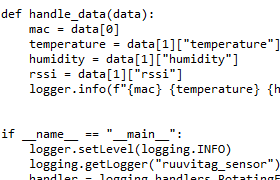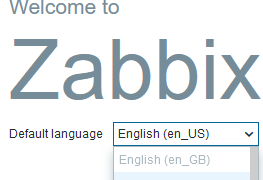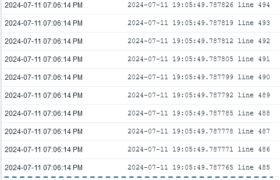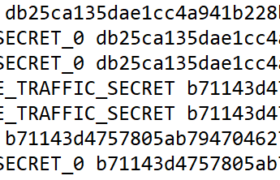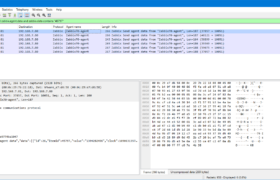Let’s do some Docker networking with Zabbix proxies. The presented Docker configurations apply to other similar client-server applications as well, so you may find this useful even if you don’t use Zabbix. On this longish page: Preparations I’m running the Docker service on Debian Linux 12 on a virtual machine, with no special configurations. These […]
Tag: zabbix
RuuviTag Monitoring in Zabbix
RuuviTag is a small battery-powered sensor that measures temperature, humidity, air pressure and movement. It communicates the measured data by broadcasting the data values using Bluetooth. I’m using a few of those sensors to monitor some rooms at home. There is an official Ruuvi Gateway Router available that can be used to interface the RuuviTags […]
24-hour Timestamps for Zabbix 7
The default language in the Zabbix user interface (UI) installation is “en_US”, meaning English (US). Probably because of the European roots of Zabbix, the timestamps have still been shown in 24-hour (world-standard) format, up until Zabbix version 6.4. Now in Zabbix 7.0 the default time display format has been changed to correspond to the selected […]
Zabbix Agent Log File Monitoring Performance
Log file monitoring in Zabbix means that the Zabbix agent in active mode will periodically check if the given log file has received new content that match the configured regular expression. Matched content is sent to the Zabbix server (or proxy, if the agent is monitored by a proxy) for further processing and storage. Zabbix […]
Zabbix 7.0 Proxy Load Balancing
One of the new features in Zabbix 7.0 LTS is proxy load balancing. As the documentation says: Proxy load balancing allows monitoring hosts by a proxy group with automated distribution of hosts between proxies and high proxy availability. If one proxy from the proxy group goes offline, its hosts will be immediately distributed among other […]
Decrypting Zabbix TLS with Wireshark
One of the built-in security features in Zabbix is TLS (Transport Layer Security) support for external connections. This means that when your distributed Zabbix proxies or Zabbix agents connect to the Zabbix server (or vice versa), TLS can be used to encrypt all the connections. When the connections are encrypted, third parties cannot read the […]
Troubleshooting Zabbix Agent with Wireshark
A user has a Zabbix agent that collects the used disk space information on a host. The item interval is one minute: However, the user complains that Zabbix fails to collect to data appropriately as the graph has empty areas with occasional dots: In Zabbix implementations with very high NVPS (new values per second) this […]
Change History for Zabbix Protocols
All the information on this page is gathered from the official Zabbix documentation about the protocols and the upgrade notes. I’m using this information to assist with the Zabbix protocol dissector development in Wireshark, thus not all possible protocol change details will be documented here but mostly only those that affect the dissector. Version history: […]
Data Buffering in Zabbix Proxy
One of the features of Zabbix proxy is that it can buffer the collected monitoring data if connectivity to Zabbix server is lost. In this post I will show it happening, using packet capture, or packet analysis. Zabbix setup and capturing Zabbix proxy traffic This is the setup in this demo: For simplicity, the agent […]
LLD Filtering with Macros in Zabbix
When configuring monitoring and using templates in Zabbix you often see low-level discovery (LLD) used for finding out the monitored components or features of a host. In this post I will explain how user macros and regular expressions are used in LLD for filtering the discovery results. I’m using the Network Generic Device by SNMP […]

